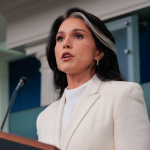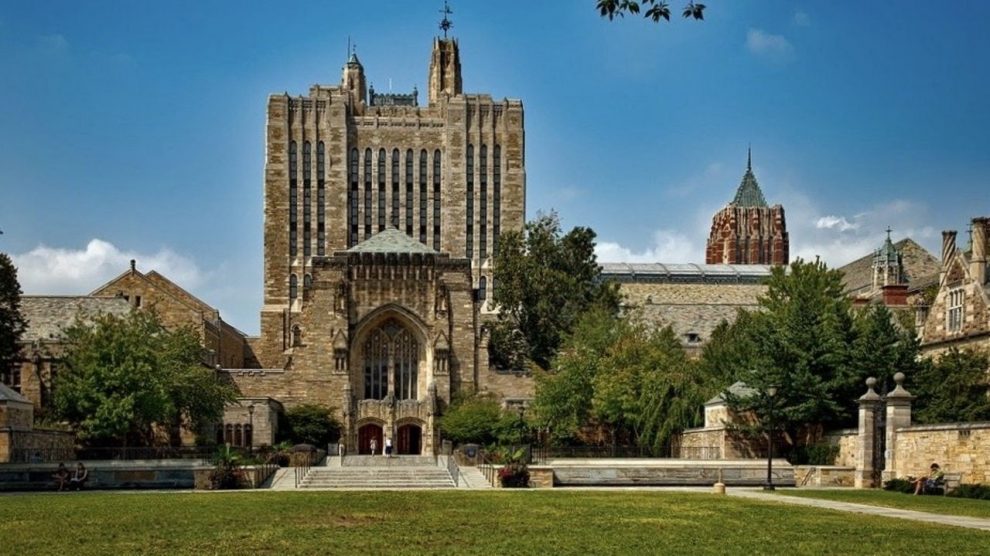If you’re planning to attend Yale soon, you might want to invest in a dorm room refrigerator.
Also advised for purchase: lots of brown paper sacks, Capri Suns, and Fruit Roll-Ups.
As it turns out, you’re likely to often be packing your lunch.
Yale Daily News reports the Ivy League institution is looking out for its attendees by ordering them not to eat at local restaurants.
On Facebook, the outlet relayed rules for students eyeing a triumphant spring experience:
Yale announced its plans for the start of spring semester in an afternoon email. Students can return to campus anytime between Jan. 14 and Feb. 4. They must quarantine in their residences (except to pick up food and test) until they receive results of an arrival test. Yale instituted a campus-wide quarantine until Feb. 7 or (which may be extended depending on public health conditions).
Eating out will be prohibited — anywhere in the off-campus area:
Students may not visit New Haven businesses or eat at local restaurants (even outdoors) except for curbside pickup. Dining is grab-and-go until public health conditions improve. Yale is currently set to resume in-person classes on Feb. 7 — after two weeks of remote instruction.
It’s a bold choice, generating social media responses from “Yale would be better off shutting its doors completely…than subjecting…students to this level of tyranny” to “This is ****ing insane.”
So goes our modern mode.
There was a time in America when highly-survivable illness was considered an acceptable part of life. When cold season came around, people largely decided to deal with what germs may come.
But these days, “risk” is a four-letter word. People must preserve infection-free life by keeping from having a normal one.
Of course, the country’s current foe is no common biological bane. If regulations and observed practices are to be taken seriously, we must conclude COVID’s quite the trickster.
Miraculously, SARS-CoV-2 appears much more transmissible at night — hence curfews. Previously, submicroscopic infectious agents didn’t even own a watch.
At eateries, the malady is often magically maimed: If you’re in possession of liquid in a glass, the virus has evidently agreed not to act out. And in instances where the drinks have yet to come, if your restaurant server has at least wrought rolls, you can flaunt your full face, worry-free.
Such is suggested by mainstream masking mandates.
In many cities, if you’re vaccinated — though that in no way prohibits contraction or transmission — you can gather with needled neighbors at large events. The virus will presumably respect your efforts.
But most incredible of all, the coronavirus ostensibly can’t get government officials. That appears the only explanation for those who’ve ordered us to stay covered and quarantined eschewing those rigorous rules themselves.
This an Animal Farm should be required reading these days 😳
— David Whitetop (@ChimneyDream) December 30, 2021
Given COVID’s apparent permissiveness where food and drink are involved, Yale’s restaurant policy seems all the more perplexing.
But the school isn’t your run-of-the-mill chance-taker; it’s ahead of the curve where safety is concerned.
Case in point: In May of 2020, a Yale professor protectively warned that Donald Trump was “awfully close to genocide” with his “mass death” pandemic policy.
Recently, the college even guarded its students’ emotional health — by altering a near-century old sculpture. The piece portrayed a Pilgrim presenting a musket beside an American Indian holding a bow.
In case the white man was aiming his gun at the other — which he possibly was not — Yale disarmed the New World settler.
Still, now and again, the university doesn’t sweat the small stuff — like death by murder for some:
Yale Medical School Welcomes Psychiatrist Who Dreams of 'Unloading a Revolver Into the Head of Any White Person' https://t.co/pLlgF7JIYB
— RedState (@RedState) June 5, 2021
So select races can bite the bullet, but that projectile better not have been eaten at a local restaurant.
And don’t misunderstand — according to the school’s instructive email, students must “follow these guidelines whether [they] live on campus or off.”
It sounds like elite education’s readying for another banner year.
Story cited here.
























